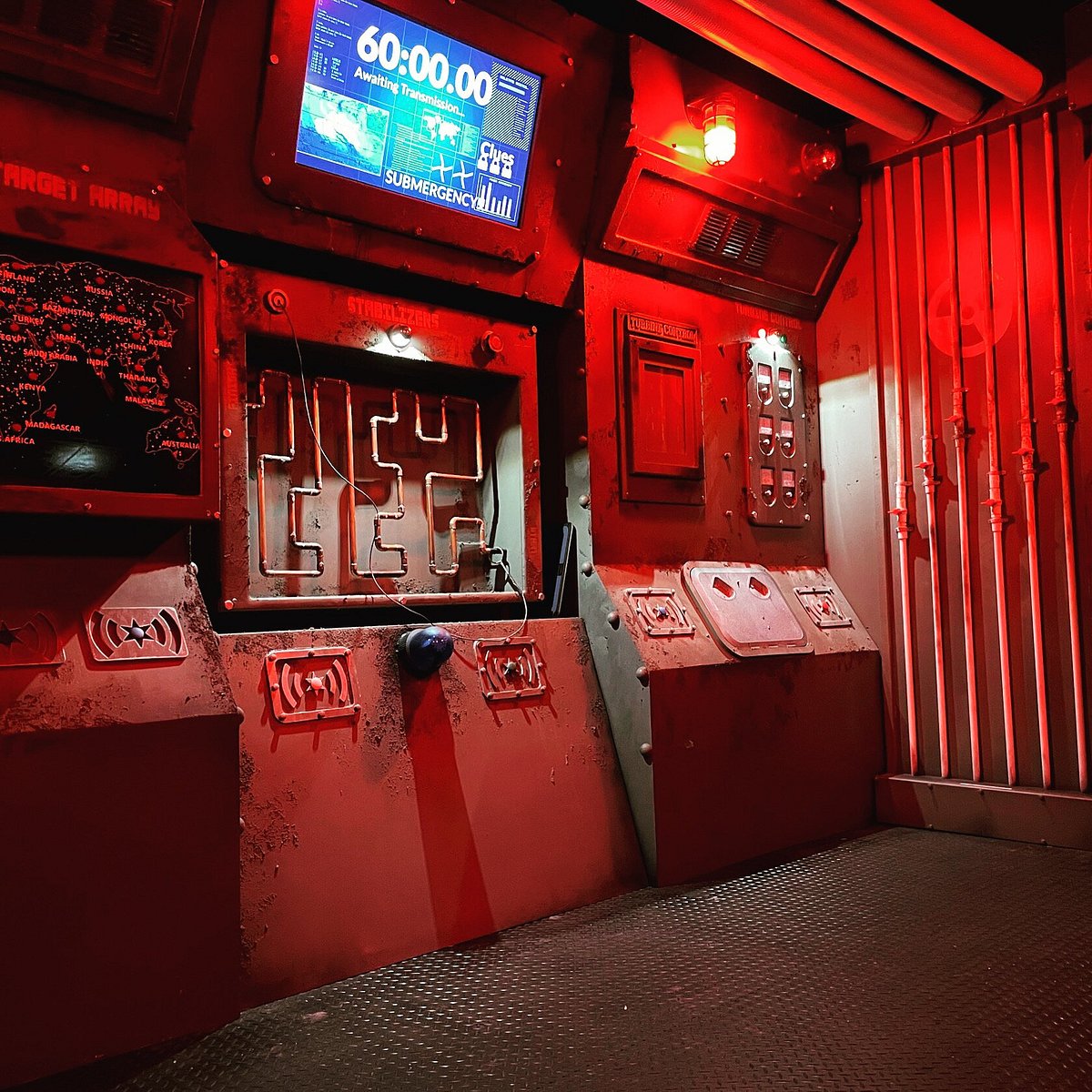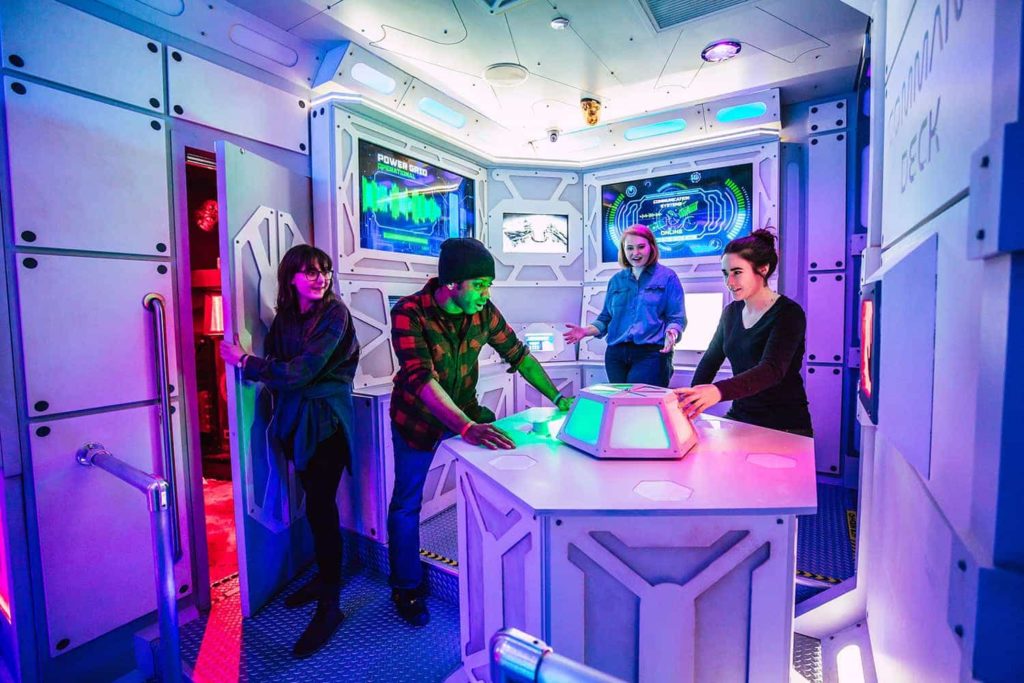Test Your Wits at the Escape Room Seattle WA: Enjoyable for All Ages
Test Your Wits at the Escape Room Seattle WA: Enjoyable for All Ages
Blog Article
Difficulty Your Mind With Our Intriguing Escape Room Puzzles and Clues
Embarking on an escape space experience supplies a diverse experience that mixes cognitive difficulties with immersive narration. Each space, carefully crafted with special motifs, draws individuals right into a globe where logic, monitoring, and physical puzzles merge.
The Art of Problem Design
The art of puzzle design in retreat areas is a careful and imaginative procedure that needs a deep understanding of both cognitive and psychological involvement. Crafting an effective challenge includes stabilizing intricacy with solvability, making certain that individuals remain tested yet not bewildered. This equilibrium is essential, as it fosters a feeling of accomplishment and promotes ongoing engagement.
Challenge designers need to consider different cognitive abilities, such as pattern acknowledgment, deductive reasoning, and spatial recognition. These elements need to be intertwined effortlessly within the story of the escape area, enhancing the immersive experience. Emotional involvement is equally crucial; challenges ought to evoke curiosity, excitement, and periodic irritation, encouraging individuals to persist and eventually prosper.
Interest to information is critical. Every idea, prop, and system has to be diligently designed and examined to guarantee functionality and coherence within the story. Designers often repeat on their productions, incorporating comments from test groups to fine-tune difficulty levels and get rid of uncertainties.

Kinds of Escape Room Challenges
Recognizing the complexities of challenge layout naturally brings about an exploration of the varied kinds of difficulties encountered in retreat spaces. These challenges can be extensively classified into physical problems, reasoning puzzles, and observational challenges, each offering special types of involvement and cognitive excitement.
Physical challenges require individuals to communicate with their environment, commonly including jobs such as assembling items, adjusting mechanisms, or uncovering covert compartments. These obstacles involve responsive detects and spatial thinking, urging team effort and hands-on analytic.
Reasoning challenges, on the various other hand, need analytical thinking and pattern acknowledgment. Participants may be tasked with translating ciphers, solving mathematical troubles, or finding links in between apparently unconnected clues - escape room. These problems are designed to evaluate the players' deductive reasoning and intellectual expertise
Observational puzzles count on eager focus to detail. Players should inspect their surroundings to determine refined tips, disparities, or hidden messages. These difficulties frequently require a sharp eye and a capability to perceive links that others may overlook.
Techniques for Success
Accomplishing success in getaway rooms requires a thoughtful mix of strategy and partnership. Teamwork is vital; gamers need to leverage their collective staminas to solve complicated problems efficiently. Splitting jobs according to individual skills can improve the process-- those with a propensity for pattern recognition can deal with aesthetic problems, while logical thinkers deal with sequences and puzzles.
Reliable communication is an additional keystone of success. Sharing discoveries immediately prevents duplicated efforts and ensures everyone remains on the exact same page. Utilizing a main location to position located items can help track development and stay clear of missing essential clues.
Time management is equally crucial. Designate a particular quantity of time to every challenge, preventing long term concentrate on any kind of solitary challenge. If progression stalls, switching problems or seeking aid from colleagues can provide fresh perspectives.
It's likewise helpful to acquaint oneself with common escape area motifs and problem kinds in advance. Recognizing possible challenge styles, such as ciphers or lock combinations, can expedite analytic.
Lastly, maintaining a favorable and composed attitude under stress can dramatically influence efficiency. Tension can cloud judgment, so keeping tranquil makes sure clear reasoning and efficient cooperation, bring about a higher likelihood of efficiently running away.

Advantages of Escape Rooms
Engaging in getaway spaces uses a plethora of benefits that prolong beyond simple enjoyment. These immersive experiences function as a durable system for developing vital thinking and analytical skills. Participants are required to assess clues, recognize patterns, and devise solutions under time restraints, cultivating mental dexterity and cognitive versatility.
In addition, retreat spaces are a powerful tool for improving teamwork and communication. The collaborative nature of these activities necessitates effective interaction and coordination among staff member. This setting urges individuals to articulate their thoughts plainly, listen actively, and job synergistically in the direction of a common objective, therefore enhancing interpersonal abilities.
Moreover, getaway rooms provide a superb opportunity for tension relief and psychological renewal. The engrossing nature of the obstacles enables individuals to divert their emphasis from daily stress factors, advertising a sense of success and wellness upon resolving the problems. This can cause enhanced his comment is here mental health and wellness and enhanced productivity in various other areas of life.
Last but not least, these experiences typically require creativity and ingenuity, which can translate right into innovative analytical capacities in expert setups. By participating in retreat rooms, people can develop a varied capability that applies in numerous real-world scenarios, making them a useful addition to any type of individual or expert advancement strategy.
Popular Themes and Situations
Looking into the varied globe of escape spaces discloses discover this a myriad of prominent motifs and scenarios that mesmerize individuals and heighten the immersive experience. Amongst one of the most cherished motifs are those that carry players into fantastical worlds or historic periods. For example, ancient Egyptian burial places, medieval castles, and pirate adventures are perennial faves, enabling participants to address problems within highly detailed settings that stimulate a feeling of adventure and discovery - escape room in seattle.
An additional common theme is the mystery and detective category, where players locate themselves in the role of sleuths addressing a criminal offense or uncovering tricks. These situations often feature intricate storylines and a collection of interconnected hints that call for eager monitoring and deductive reasoning to unravel.
Furthermore, sci-fi and scary themes hold significant appeal, drawing on the intrigue of futuristic innovation or the thrill of navigating haunted homes and laboratories. These situations frequently include unique results and innovative props, improving the realistic look and tension.
Last but not least, several retreat spaces attract motivation from prominent culture, producing experiences based on cherished publications, movies, or television shows. This can stimulate a feeling of familiarity and enjoyment, as participants engage with scenarios that admire their favored stories.
Conclusion
The complex style of retreat room challenges and hints supplies an one-of-a-kind mix of cognitive obstacles and immersive narration. By taking part in different types of physical, logical, and empirical puzzles, participants refine vital reasoning and team effort abilities. Utilizing efficient methods improves the total experience, highlighting the multifaceted advantages More Info of escape spaces. Popular motifs and circumstances further enrich the adventure, making escape rooms a instructional and compelling task for enhancing psychological skill and analytical capacities.
Each space, carefully crafted with unique themes, attracts individuals into a world where logic, observation, and physical puzzles merge.The art of puzzle design in escape areas is a innovative and thorough process that calls for a deep understanding of both cognitive and psychological involvement. Crafting a successful problem entails balancing intricacy with solvability, ensuring that individuals continue to be tested yet not overwhelmed. The gripping nature of the challenges enables individuals to divert their emphasis from day-to-day stress factors, promoting a sense of accomplishment and well-being upon solving the puzzles.The detailed design of retreat space problems and ideas uses an one-of-a-kind mix of cognitive challenges and immersive storytelling.
Report this page